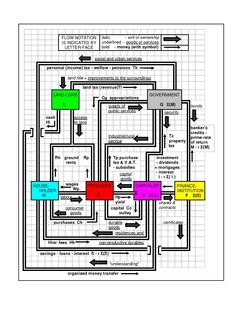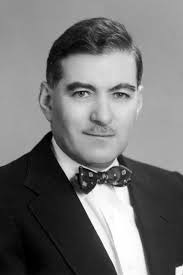Crony capitalism is an economic system in which businesses thrive not as a result of risk, but rather as a return on money amassed through a nexus between a business class and the political class. This is often achieved by using state power rather than competition in managing permits, government grants, tax breaks, or other forms of state intervention over resources where the state exercises monopolist control over public goods, for example, mining concessions for primary commodities or contracts for public works. Money is then made not merely by making a profit in the market, but through profiteering by rent seeking using this monopoly or oligopoly. Entrepreneurship and innovative practices which seek to reward risk are stifled since the value-added is little by crony businesses, as hardly anything of significant value is created by them, with transactions taking the form of trading. Crony capitalism spills over into the government, the politics, and the media, when this nexus distorts the economy and affects society to an extent it corrupts public-serving economic, political, and social ideals.
Capitalism is an economic system based on the private ownership of the means of production and their operation for profit. Characteristics central to capitalism include private property, capital accumulation, wage labor, voluntary exchange, a price system and competitive markets. In a capitalist market economy, decision-making and investments are determined by every owner of wealth, property or production ability in financial and capital markets, whereas prices and the distribution of goods and services are mainly determined by competition in goods and services markets.
In economics, a free market is a system in which the prices for goods and services are self-regulated by the open market and by consumers. In a free market, the laws and forces of supply and demand are free from any intervention by a government or other authority and from all forms of economic privilege, monopolies and artificial scarcities. Proponents of the concept of free market contrast it with a regulated market in which a government intervenes in supply and demand through various methods such as tariffs used to restrict trade and to protect the local economy. In an idealized free-market economy, prices for goods and services are set freely by the forces of supply and demand and are allowed to reach their point of equilibrium without intervention by government policy.
State capitalism is an economic system in which the state undertakes commercial economic activity and where the means of production are organized and managed as state-owned business enterprises, or where there is otherwise a dominance of corporatized government agencies or of publicly listed corporations in which the state has controlling shares. Marxist literature defines state capitalism as a social system combining capitalism with ownership or control by a state—by this definition, a state capitalist country is one where the government controls the economy and essentially acts like a single huge corporation, extracting the surplus value from the workforce in order to invest it in further production. This designation applies regardless of the political aims of the state and some scholars argue that the modern People's Republic of China constitutes a form of state capitalism and/or that the Soviet Union failed in its goal to establish socialism, but rather established state capitalism.

Anti-capitalism encompasses a wide variety of movements, ideas and attitudes that oppose capitalism. Anti-capitalists, in the strict sense of the word, are those who wish to replace capitalism with another type of economic system.
A market economy is an economic system in which the decisions regarding investment, production and distribution are guided by the price signals created by the forces of supply and demand. The major characteristic of a market economy is the existence of factor markets that play a dominant role in the allocation of capital and the factors of production.
A mixed economy is variously defined as an economic system blending elements of market economies with elements of planned economies, free markets with state interventionism, or private enterprise with public enterprise. There is no single definition of a mixed economy. One definition is about a mixture of markets with state interventionism, referring specifically to capitalist market economies with strong regulatory oversight, interventionist policies and governmental provision of public services. The other definition is apolitical in nature, strictly referring to an economy containing a mixture of private enterprise with public enterprise.

In political science, statism is the doctrine that the political authority of the state is legitimate to some degree. This may include economic and social policy, especially in regard to taxation and the means of production.

Finance capitalism or financial capitalism is the subordination of processes of production to the accumulation of money profits in a financial system.
Laissez-faire is an economic system in which transactions between private parties are absent of any form of government intervention such as regulation, privileges, imperialism, tariffs and subsidies. As a system of thought, laissez-faire rests on the following axioms:
- The individual is the basic unit in society.
- The individual has a natural right to freedom.
- The physical order of nature is a harmonious and self-regulating system.
- Corporations are creatures of the state and therefore the citizens must watch them closely due to their propensity to disrupt the Smithian spontaneous order.
Free-market anarchism, or market anarchism, also known as free-market anti-capitalism and free-market socialism, is the branch of anarchism that advocates a free-market economic system based on voluntary interactions without the involvement of the state. A form of individualist anarchism, left-libertarianism and libertarian socialism, it is based on the economic theories of mutualism and individualist anarchism in the United States. Left-wing market anarchism is a modern branch of free-market anarchism that is based on a revival of such free-market anarchist theories. It is mainly associated with left-libertarians such as Kevin Carson and Gary Chartier, who consider themselves anti-capitalists and socialists.
The social market economy, also called Rhine capitalism or social capitalism, is a socioeconomic model combining a free market capitalist economic system alongside social policies that establish both fair competition within the market and a welfare state. It is sometimes classified as a coordinated market economy. The social market economy was originally promoted and implemented in West Germany by the Christian Democratic Union (CDU) under Chancellor Konrad Adenauer in 1949. Its origins can be traced to the interwar Freiburg school of economic thought.

An economic system, or economic order, is a system of production, resource allocation and distribution of goods and services within a society or a given geographic area. It includes the combination of the various institutions, agencies, entities, decision-making processes and patterns of consumption that comprise the economic structure of a given community. As such, an economic system is a type of social system. The mode of production is a related concept. All economic systems have three basic questions to ask: what to produce, how to produce and in what quantities and who receives the output of production.
The Anglo-Saxon model or Anglo-Saxon capitalism is a capitalist model that emerged in the 1970s based on the Chicago school of economics. However, its origins date to the 18th century in the United Kingdom under the ideas of the classical economist Adam Smith.

Sol Tax was an American anthropologist. He is best known for creating action anthropology and his studies of the Meskwaki, or Fox, Indians, for "action-anthropological" research titled the Fox Project, and for founding the academic journal Current Anthropology. He received his doctorate from the University of Chicago in 1935 and, together with Fred Eggan, was a student of Alfred Radcliffe-Brown.
Post-capitalism includes a number of proposals for a new economic system to replace capitalism, or otherwise speculate on the fate of the current form of the socio-economic order. According to some classical Marxist and some social evolutionary theories, post-capitalist societies may come about as a result of spontaneous evolution as capitalism becomes obsolete. Others propose models to intentionally replace capitalism. The most notable among them are socialism and anarchism.
Criticism of capitalism ranges from expressing disagreement with the principles of capitalism in its entirety to expressing disagreement with particular outcomes of capitalism.
Inclusive capitalism is a term composed of two complementary meanings: (1) poverty is a significant, systemic problem in countries which have already embraced or are transitioning towards capitalistic economies, and (2) companies and non-governmental organizations can sell goods and services to low-income people, which may lead to targeted poverty alleviation strategies, including improving people's nutrition, health care, education, employment and environment, but not their political power.
"Actually existing capitalism" or "really existing capitalism" is an ironic term used by critics of neoliberalism and capitalism. The term is used to claim that many economies purportedly practicing capitalism actually have significant state intervention and partnerships between private industry and the state. The term mixed economy is also used to describe economies with these attributes. The term seeks to point out discrepancy between capitalism as normally defined and what is labelled as capitalism in practice, and to claim that (1) capitalism as defined does not and will not exist and (2) actually existing capitalism is undesirable. The term is used as a response to the economic doctrines that have dominated western economic thought throughout the neoliberal period. Critics point to the use of regulation to avoiding economic problems such as acute commodities fluctuations, financial market crashes, monopolies, and extensive environmental damage as examples of how capitalism as defined does not match actually existing capitalist economic systems.
Left-wing market anarchism is a strand of free-market anarchism and an individualist anarchist, left-libertarian and libertarian socialist political philosophy and economic theory associated with contemporary scholars such as Kevin Carson, Gary Chartier, Charles W. Johnson, Roderick T. Long, Chris Matthew Sciabarra, Sheldon Richman and Brad Spangler, who stress the value of radically free markets, termed freed markets to distinguish them from the common conception which these libertarians believe to be riddled with statist and capitalist privileges. Proponents of this approach distinguish themselves from right-libertarians and strongly affirm the classical liberal ideas of self-ownership and free markets while maintaining that taken to their logical conclusions these ideas support anti-capitalist, anti-corporatist, anti-hierarchical and pro-labor positions in economics; anti-imperialism in foreign policy; and thoroughly radical views regarding issues such as class, gender, sexuality and race.




